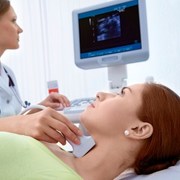Normal thyroid function is important to women at all stages of life, but a healthy thyroid is especially key for women wanting to become pregnant. According to the American Thyroid Association (ATA), thyroid problems can lead to infertility, complications during pregnancy and affect a newborn’s neurological development.
Studies show that under active thyroid (hypothyroidism) can result in increased risk of miscarriage, premature birth, maternal high blood pressure during pregnancy and pre-eclampsia, a potentially serious condition that develops during the last trimester of pregnancy.
The thyroid is a butterfly-shaped gland situated in the lower neck just above the collarbones. It secretes hormones that control general metabolism and influences a wide range of other biological functions including body temperature, blood calcium, weight loss, and menstrual periods.
“When a woman is unable to have a baby, a thyroid gland disorder may be to blame,” states Roland, Gaertner, a medical doctor and professor at Munich University. He suggests that women with fertility issues should have their thyroid and thyroid hormone levels evaluated.
Proper levels of thyroid hormones are required very early in a pregnancy to ensure that the fetus develops properly. If a woman’s thyroid is not secreting sufficient levels of hormones, she may not be aware of the problem, but miscarriages within the first weeks of pregnancy can occur before a woman realizes that she is pregnant.
A primary cause of hypothyroidism is the presence of so-called “auto-antibodies” that mistakenly attack the thyroid gland causing it to under produce its hormones, or in some cases, stimulate particular thyroid tissues to over secrete hormones.
Researchers do not understand why auto-antibodies develop, but an estimated five to eight percent of women carry auto-antibodies to the thyroid and are frequently not diagnosed with the problem until they try to become pregnant. Reproductive specialists are currently debating whether screening all pregnant women for hypothyroidism may be cost effective. A consensus will not be reached until ongoing studies are completed.
A recent ATA statement calls for “a plan for action (to) research the impact of maternal thyroid status on pregnancy and fetal and childhood development” in order to determine the value of widespread testing of thyroid function.
The bottom line is that any woman who has had a history of thyroid issues should alert her obstetrician when she is considering having a baby. For women who have had problems becoming pregnant or maintaining a pregnancy, a blood test to examine the thyroid levels should be considered.
The good news is that an under active thyroid can be easily treated with doses of thyroid hormones. If untreated, hypothyroidism often worsens during pregnancy and in addition to affecting the fetus, the condition can lead to long term thyroid problems for the mother later in life.
Article Links:
About.com, 2009, “ATA Focuses on Thyroid Risks to Pregnancy,”
http://thyroid.about.com/cs/pregnantfertility/a/2004news_2.htm
China Post, 2009. “Thyroid Disease can Cause Infertility: Study,”
http://www.chinapost.com.tw/health/pregnancy-&-menopause/2009/02/10/195481/Thyroid%2Ddisease.htm
Related Links:
eMedicine, 2008. “Autoimmune Thyroid Disease and Pregnancy,”
http://emedicine.medscape.com/article/261913-overview
Thyroid Disorders and Pregnancy, 2000.
http://www.thyroid.ca/Articles/EngE11A.html



